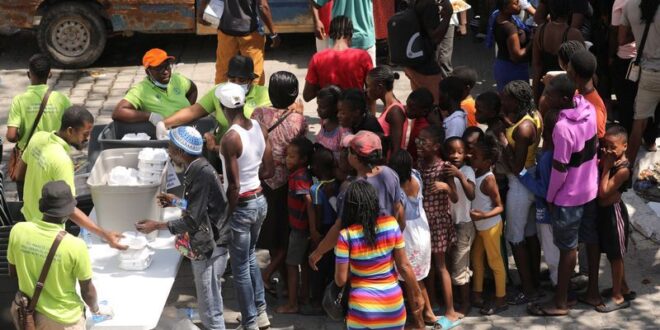PORT-AU-PRINCE (Reuters) – Raging violence in Haiti triggered by a top gang leader’s push to overthrow the prime minister has forced more than 15,000 people to flee their homes, many of which have been destroyed, accentuating the country’s sense of misery and lawlessness.
“Armed gangs forced us to leave our homes. They destroyed our houses, and we’re on the streets,” said Nicolas, who is living in a camp after abandoning his home, sleeping in such cramped conditions he says he feels like an animal.
The situation escalated over the weekend with Prime Minister Ariel Henry’s trip to Kenya to tie up a deal for the deployment of foreign troops in Haiti. On Sunday, Haiti’s threadbare government declared a state of emergency after inmates escaped in two major prison breaks and heavy gunfire spread across the capital.
Henry’s arrival date back in Haiti remains unclear.
Meanwhile, multiple embassies have recalled their staff and neighboring Dominican Republic has said it will never accept setting up refugee camps.
The United Nations’ immigration office said during the weekend at least 15,000 people had been displaced due to violence.
“I didn’t have time to take any of my things, not even my panties,” said Jasmine, who declined to give her last name, at a shelter. “I didn’t know what to do.”
Reynold Saint-Paul, a resident of the Port-au-Prince neighborhood Lalue, said he came to a shelter to find water – an increasingly scarce commodity in the capital.
Since Henry came to power after the assassination of Haiti’s last president in 2021, violent gangs have expanded their territory. The prime minister had pledged to step down by early February, but delayed the process, citing the lack of security.
A deployment date for the U.N.-backed multinational security mission has not been set. As of late February, the U.N. said five nations had formally pledged troops and less than $11 million was deposited into a fund for the mission.
The U.N. estimates the conflict with gangs killed close to 5,000 people last year and has driven some 300,000 from their homes.
(Reporting by Steven Aristil; Writing by Valentine Hilaire; Editing by Stephen Coates)
 BeritaKini.biz Berita Viral Terkini di Malaysia
BeritaKini.biz Berita Viral Terkini di Malaysia





